Your if is already checking for the true value of isNumber, you don't need to explicitly check isNumber in else block if its false, because the opposite of true is false that's why you get that warning.
Imagine the compiler talking to you:
Compiler:
Don't tell my else to check if its false because my if block
is already checking if its true, let my if do the heavy lifting and leave my else to just wake up when isNumber becomes false, no need to remind my poor else, leave him be...
Edit: Sample scenarios below, class vs local vs top level file scope
Both classLevelScope and localLevelScope will give you a warning.
class MyClass {
val classLevelScope = false
fun function() {
if (classLevelScope) {
} else if (!classLevelScope) { // you'll get a warning here
}
}
}
class MyClass {
fun function() {
val localScope = false
if (localScope) {
} else if (!localScope) { // you'll get a warning here
}
}
}
But a Top level file scope will not
var isChecked = false // top level file scope, inside MyClass.kt
class MyClass {
fun function() {
if (isChecked) {
} else if (!isChecked) { // No warning here
}
}
}
My assumption for the top level scoped variable is that the compiler cannot determine who would change its value in what thread, class, instance of a class or from any other place because a top level scoped variable can be accessed anywhere unlike the classLevelScope or the localLevelScope which are only accessible outside using their enclosing scope. Your bind.number.isChecked might be a top level scoped variable.
If the warning bothers you, you can remove it from your A.S settings
Inspections -> Kotlin -> Probable bugs -> Constant Condition -> Uncheck the box

